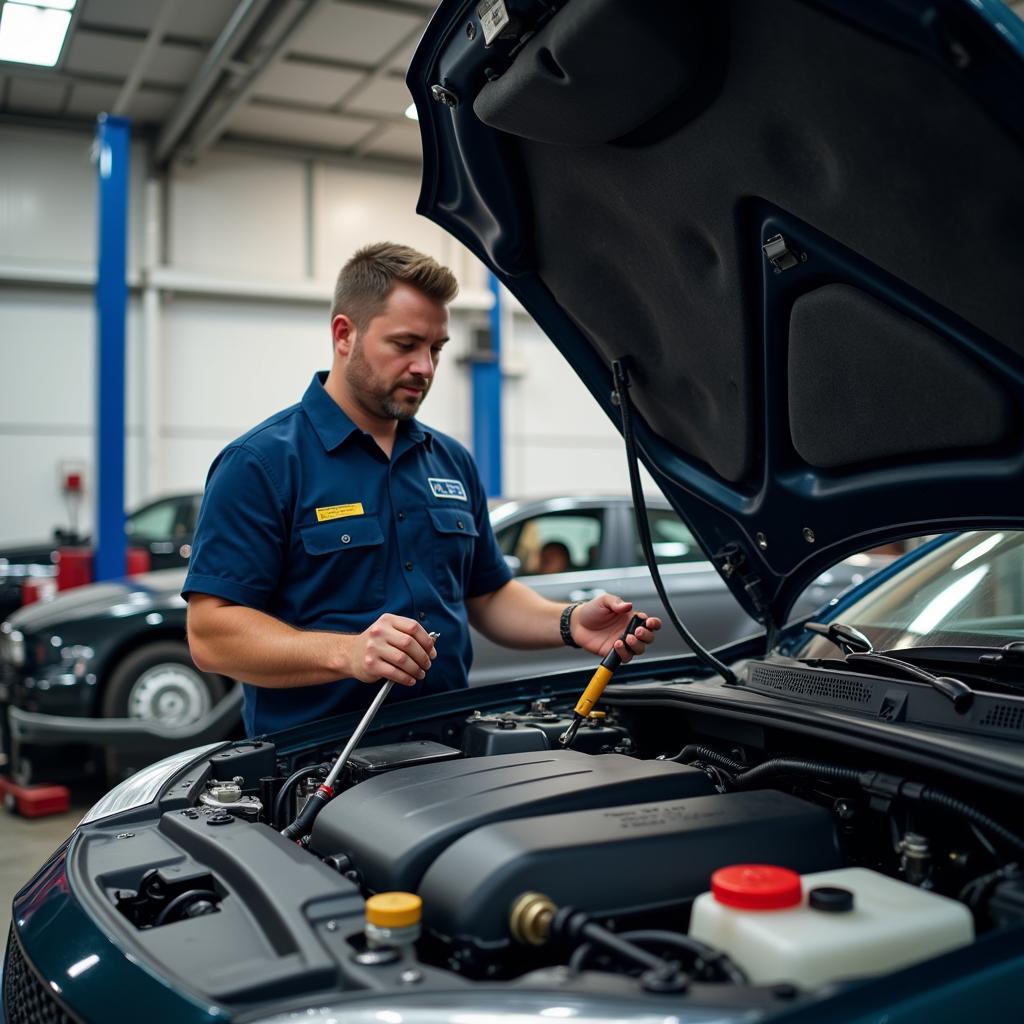Do I Have to Service My Car Every Year?
Owning a car comes with responsibilities, and regular servicing is a big one. You might have heard the age-old advice to service your car every year, but is that really necessary in today’s world? Let’s dive into the nitty-gritty of car servicing and see if you really need to book that annual appointment.
The Yearly Service Myth – Fact or Fiction?
The truth is, the frequency of car servicing isn’t one-size-fits-all. While annual servicing was the norm for older vehicles, modern cars are built to withstand more. Your car’s service schedule depends on a few factors:
- Vehicle Age: Older cars may benefit from more frequent checkups due to wear and tear.
- Mileage: The more you drive, the faster your car’s components wear down, necessitating more frequent servicing.
- Driving Conditions: Harsh driving conditions like extreme temperatures, stop-and-go traffic, and rough terrain can take a toll on your vehicle, making regular servicing even more crucial.
- Manufacturer Recommendations: Your car’s owner’s manual is your best friend. It outlines specific service intervals recommended by the manufacturer based on your car model.
The Risks of Skipping Service
While skipping a service or two might seem tempting, especially if your car seems fine, it can lead to bigger problems down the road.
- Safety Hazards: Neglected maintenance can result in brake failure, tire blowouts, or engine problems, putting you and others at risk.
- Costly Repairs: Small issues, if left unattended, can snowball into major (and expensive) repairs. Regular servicing helps catch these issues early on.
- Reduced Fuel Efficiency: A poorly maintained engine won’t perform optimally, leading to decreased fuel efficiency and increased expenses at the pump.
- Voided Warranty: Some manufacturers may void your car’s warranty if you don’t follow the recommended service schedule.
What Happens During a Car Service?
A car service isn’t just an oil change. It’s a comprehensive checkup that ensures your vehicle is running smoothly and safely. Here are some key aspects of a typical service:
- Oil and Filter Change: Fresh oil lubricates the engine, while a new filter removes contaminants.
- Fluid Top-ups: Essential fluids like coolant, brake fluid, and transmission fluid are checked and topped up.
- Tire Inspection and Rotation: Tires are inspected for wear and tear, and rotated to ensure even wear.
- Brake Inspection: Brake pads and rotors are checked for wear and tear to ensure optimal stopping power.
- Battery Check: The battery’s health is assessed, and terminals are cleaned.
- Lights and Electrical Check: All lights, signals, and electrical systems are inspected for proper function.
 Experienced Car Service Technician
Experienced Car Service Technician
“Regular car servicing is like giving your car a health checkup,” says John Smith, Senior Automotive Technician at XYZ Auto. “Just like you wouldn’t skip a doctor’s appointment, you shouldn’t neglect your car’s maintenance needs.”
Finding the Right Service Schedule for You
So, how often should you service your car? Consult your owner’s manual for the most accurate information. In general:
- New Cars: Modern vehicles often have service intervals of every 7,500, 10,000, or even 15,000 miles.
- Older Cars: Aim for a service at least once a year or every 5,000-7,500 miles.
Conclusion
While you might not need to service your car every year, regular maintenance is essential for its longevity, safety, and your peace of mind. Follow your manufacturer’s recommendations, and don’t hesitate to consult a trusted mechanic if you have any concerns.
FAQs
1. What happens if I service my car less often than recommended?
While modern cars are more robust, consistently servicing your car less frequently than the manufacturer’s recommendation could lead to premature wear and tear on components, potentially leading to more expensive repairs down the line. It could also void your car’s warranty.
2. Can I service my car myself?
While some routine maintenance tasks like checking fluid levels can be done at home, it’s best to leave more complex procedures to qualified mechanics. They have the expertise, tools, and knowledge to diagnose and fix problems correctly.
3. How can I find a reliable car service center?
Look for certified mechanics, ask for recommendations from friends and family, and read online reviews. A good service center will have transparent pricing, qualified technicians, and a commitment to customer satisfaction.
4. What are some signs my car needs servicing?
Unusual noises, warning lights on the dashboard, fluid leaks, vibrations, and decreased performance are all signs your car might need attention.
5. How much does a car service typically cost?
The cost varies depending on your car model, the type of service required, and the location. However, regular servicing is generally cheaper than major repairs down the line.
 Car Servicing at a Modern Service Center
Car Servicing at a Modern Service Center
Looking for reliable car service advice and information? Explore more helpful articles and resources on CarServiceOnline. We’re your trusted source for all things car maintenance!
Need immediate assistance? Contact our team of experts 24/7 via WhatsApp: +1(641)206-8880 or Email: [email protected]. We’re here to help!

